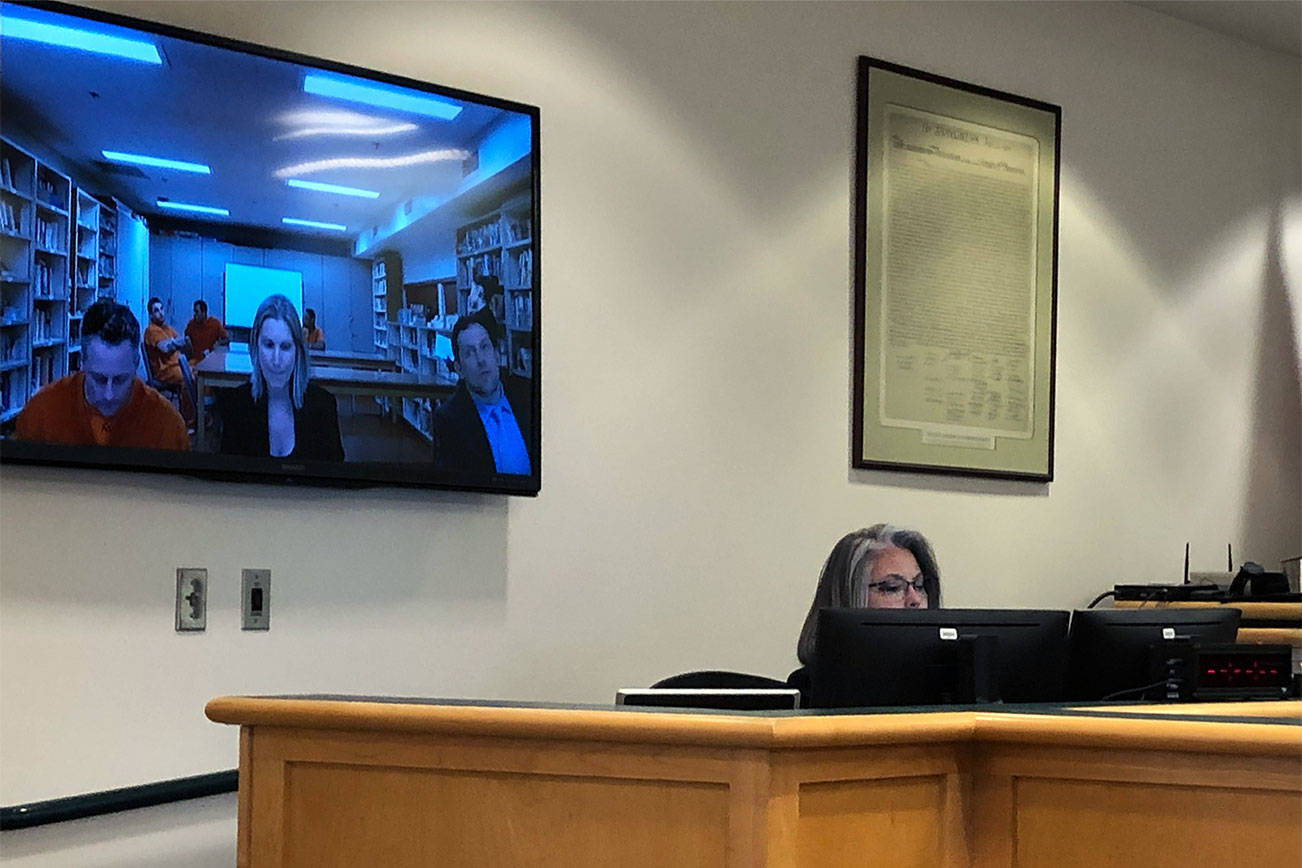The biggest challenge Island County Superior Court will face after emergency orders come to an end is holding jury trials that are safe in a COVID-19 world, according to the two judges.
Following the direction of the state Supreme Court in March, Judges Vickie Churchill and Alan Hancock signed extraordinary orders, and four subsequent amendments, that temporarily changed procedures and delayed trials in response to the pandemic.
The courts relied on technology to keep the court functional, open and transparent during the last couple of months.
Hancock pointed out that the court had procedures in place well before the pandemic for conducting video and telephonic hearings, so the changes went smoothly.
Since last fall, for example, criminal defendants in the jail, their attorneys and deputy prosecutors “attended” Monday court hearings from a room at the jail through video technology.
In fact, access to superior court improved for anyone with a computer and internet access since hearings are now live streamed.
People just have to go to the superior court website to watch the different hearings.
“I feel good about the fact that we were very much up to speed and had procedures in place well before the pandemic,” Hancock said.
Churchill said the court is continuing to explore technological solutions, such as an electronic signature system that allows people to sign papers remotely.
“We’re seeing some things that are coming out of the pandemic that make us more efficient and less dependent on paper,” she said.
But even after the emergency orders expire, court procedures will not revert to normal because people still need to be protected from the virus.
Megan Frazier, court administrator, explained that courtrooms will continue to be cleaned and sanitized after each hearing.
Every day, staff members who go into the courtrooms, including judges, will be screened, which means their temperatures will be taken and they will be asked a series of health-related questions.
Everyone will be required to wear masks and stay six feet apart.
Social distancing requirements, however, will make jury trials challenging since the jurors are normally squished together in the jury box.
The state Supreme Court’s Board for Judicial Administration is looking at the issue and is expected to come up with recommendations in June.
Frazier said one idea is to move the jury to the benches in the gallery, where there’s enough room for them to sit six feet apart.
The public would be able to watch the trial online, she said, and another courtroom may be set up so that people can watch on video; this would allow access to people who don’t have computers or internet.
“This can work,” Hancock said.
“It’s somewhat unconventional, but we can make it work and people will get their jury trials.”



